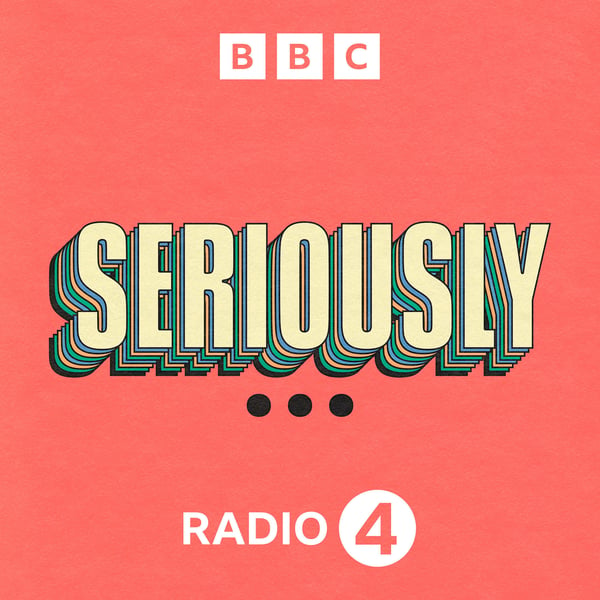The Screening Dilemma
Seriously...
BBC
4.1 • 885 Ratings
🗓️ 9 February 2024
⏱️ 29 minutes
🧾️ Download transcript
Summary
Ronnie Helvy is on his way for a screening test. He's in his sixties and wants an assessment to check for a variety of cancers. He isn't currently displaying any symptoms but is seeking reassurance. His blood will undergo a series of tests in exchange for over a thousand pounds. The outcome might be able to determine whether he is susceptible to cancers that some of his family have died from. It sounds like a good thing. Or is it?
Advances in health screening have allowed us to see far into our bodies' future. During the pandemic home testing became an everyday routine. The same technology has helped develop new tools that can sequence our DNA quickly. Simple tests are making the process less intrusive than ever before.
These improvements have also seen the development of a number of major national screening programmes. Including Our Future Health and the UK Biobank. Both of these are large scale research studies to help researchers prevent chronic health conditions. They could also inform the NHS on how to implement generalised screening across more of the population.
Private health clinics are also offering health check-ups -- tests that could spot future warning signs. Home-testing kits can be ordered from the internet. But what does this information tell us? And is it information we can trust? We look at whether the private industry is acting responsibly when it comes to genetic testing.
The BBC's Health Correspondent Matthew Hill finds out whether screening programmes can really help us live both better and longer lives. And he asks: can diagnosing conditions decades before they might affect us cause more harm than good?
The promise of diagnosing conditions early is an exciting one. But there are fears among some health professionals that more screening might not be entirely helpful.
We take a look at what lessons from the past could tell us about the current surge in screening. And we consider some of the dilemmas it might present us with.
Presenter: Matthew Hill Producer: Robbie Wojciechowski Editor: Richard Collings
Contributors: Dr Paul Cornes, Oncologist and International Advisor on cancer Prof. Clare Turnbull, Division of Genetics and Epidemiology at the Institute of Cancer Research Helen Wallace, Deputy Director of GeneWatch UK Prof Sir John Bell, Regius Professor of Medicine at the University of Oxford and the UK’s Life Sciences Champion
Transcript
Click on a timestamp to play from that location
| 0:00.0 | This was an impregnable fortress. The only way you get out was in a wooden box. |
| 0:05.0 | The controversial maximum security prison impossible to escape from. |
| 0:09.0 | And one of the duties of a political prisoner is the escape. |
| 0:12.0 | The IRA inmates who found a way. of a political prisoner is the escape. |
| 0:12.5 | The IRA inmates who found a way. |
| 0:14.5 | I'm Carlo Gableer and I'll be navigating a path |
| 0:19.5 | through the disturbing inside story of the biggest jailbreak in British and Irish history. |
| 0:25.0 | The narrative that they want is that this is a big achievement by them. |
| 0:28.5 | Escape from the maze, listen first on BBC Sounds. |
| 0:36.0 | BBC Sounds, BBC Sounds, music radio podcasts. |
| 0:39.0 | Welcome to Seriously from BBC Radio 4. |
| 0:42.0 | I'm Vanessa Kasule. If you love unique documentaries, |
| 0:46.8 | this is the podcast for you. Each week you'll find two new episodes to discover. |
| 0:52.1 | Here's a little something to expand your mind. |
| 0:55.6 | So if I could take you to just take the seat here for me. |
| 1:01.6 | Okay. Well I've used the clinic during COVID and I also had a prostate |
| 1:07.0 | test done through the blood clinic here, so I'm on their mailing list and I got an email |
| 1:11.1 | about this particular cancer check. |
| 1:13.8 | This is Ronnie. |
| 1:15.0 | He's coming to a private medical clinic in Bath. |
| 1:17.9 | For a blood test he hopes will put his mind at rest. |
| 1:21.6 | Sadly on my father's side, he died at 68 to cancer, |
... |
Transcript will be available on the free plan in -417 days. Upgrade to see the full transcript now.
Disclaimer: The podcast and artwork embedded on this page are from BBC, and are the property of its owner and not affiliated with or endorsed by Tapesearch.
Generated transcripts are the property of BBC and are distributed freely under the Fair Use doctrine. Transcripts generated by Tapesearch are not guaranteed to be accurate.
Copyright © Tapesearch 2025.

